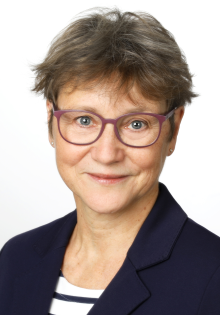Gambling in the name of science? Paderborn University's answer to this is a resounding "yes". On Wednesday, 8 October, it celebrated the opening of the GamesLab and the institution of the VR Lab - an experimental playground for virtual reality (VR). In the fields of game studies and development, the labs focus on the potential of innovative media in the context of science and education. Students from various disciplines - from computer science and media studies to art and music - work together on prototypes and acquire new skills in game design, coding, 2D & 3D arts and audio. Equipped with powerful PCs, VR glasses and graphics tablets, the labs offer a modern infrastructure for seminars, workshops, game jams and long-term project work. The NRW Ministry of Culture and Science invested around 246,000 euros in the redesign, which took place from the end of 2024 to spring 2025.
"I am delighted to be able to announce a flagship project today in which students work together in a self-organised and interdisciplinary way across the boundaries of individual degree programmes. They are not only involved in researching computer games, but can also develop them independently from the ground up by fully unleashing their creative potential," said Prof. Dr. Beate Flath, Vice President for Teaching, Studies and Quality Management at the university, in her welcoming address. Dr Enes Yigitbas from the Institute of Computer Science at Paderborn University and Lars Weiler, freelance concept artist and illustrator, spoke in their keynotes about the relevance of game development in research and teaching and provided insights into the German games industry.
As a workspace for the development and research of video games, the GamesLab utilises interdisciplinary and collaborative approaches. Several playable demo projects are created each year. In the VRLab, students learn about the development of virtual reality prototypes and their potential applications. "We now have a large collection of self-programmed computer games that have emerged from the jams and semester projects. Participation in the GamesLab enables students to work in interdisciplinary production teams and teaches social skills in cooperative work and project management," says Prof. Dr. Christian Fuchs, who is responsible for the labs as Head of the "Media Systems and Media Organisation" field together with the "Centre for Information and Media Technology Services" (ZIM). "What the participants learn here is an excellent foundation for their future careers," says Prof Dr Gudrun Oevel, co-initiator of the GamesLab and former head of the ZIM. Sebastian Krois, a research assistant at ZIM who heads the student organisation team, confirms that the whole thing is also a lot of fun: "The lab offers a space where games enthusiasts can meet and exchange ideas. We work together, sometimes for whole weekends, on a project. This not only results in game prototypes, but also friendships and contacts beyond the seminar context."
This text was translated automatically.








